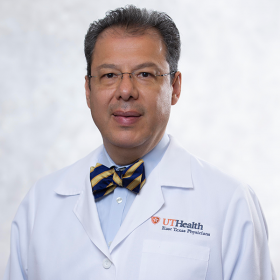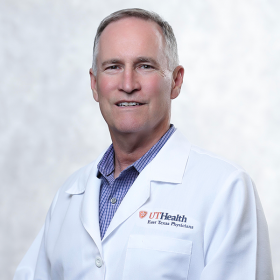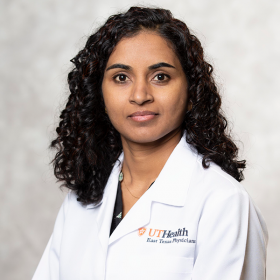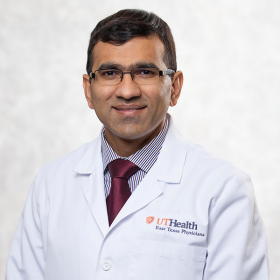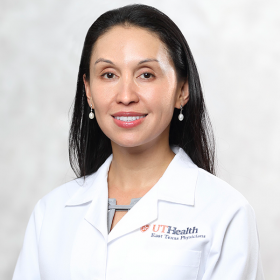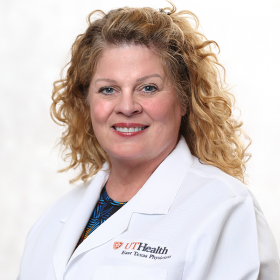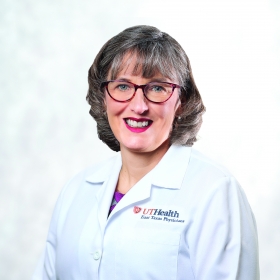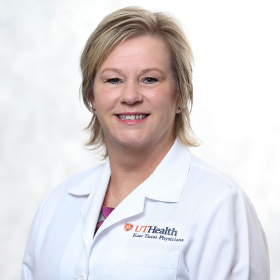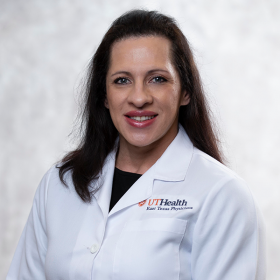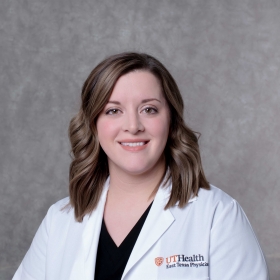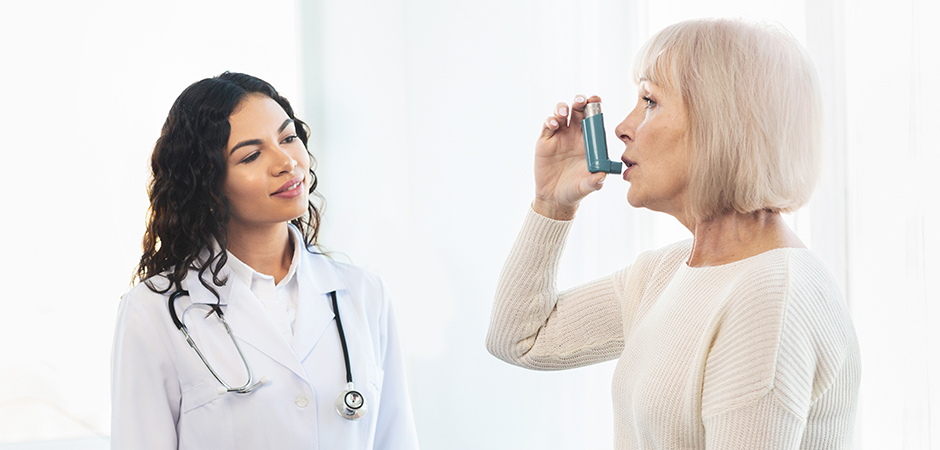
What is chronic obstructive pulmonary disease (COPD)?
COPD is a term that covers two types of chronic long-term diseases where the airways in the lungs become swollen and partly blocked. COPD gets worse over time. COPD cannot be cured, but it can be treated and managed. The UT Health East Texas Pulmonary Institute offers a wide variety of treatment options to help patients breathe better.
COPD consists of two major breathing diseases:
- Emphysema
- Chronic bronchitis
Emphysema damages the tiny alveoli (air sacs) at the tips of your lungs. Normally these air sacs stretch like balloons as you breathe in and out. Emphysema makes these air sacs stiff because they cannot stretch, air gets trapped inside. This makes it difficult for you to breathe in and can make you feel tired. Emphysema is a chronic lung condition in which the air sacs may be:
- Collapsed
- Destroyed
- Narrowed
- Overinflated
- Stretched
Over inflation of the air sacs is a result of a breakdown of the alveoli walls. It causes a decrease in respiratory function and breathlessness. Damage to the air sacs can not be fixed. Talk with your doctor to see if the Zephry® Endobronchial Valve is right for you.
Chronic bronchitis makes your airways red, swollen and irritated. Glands in your airways make extra mucus (phlegm), which blocks some air from passing through. This makes you cough, cough up mucus and feel short of breath. Many people with COPD have both emphysema and chronic bronchitis.
Causes of COPD
The number one cause of COPD is smoking tobacco. If you smoke or used to smoke, you are at a higher risk of developing COPD. Other causes include:
- Second-hand smoke
- A rare genetic disorder called Alpha-1 antitrypsin deficiency
- Air pollution (dust or chemicals)
- Repeated lung infections during childhood
- Severe asthma
- Asthma combined with smoking
Symptoms of COPD
- Frequent coughing or wheezing
- Excess phlegm or sputum production is usually worse in the mornings
- Shortness of breath with activity
- Trouble taking a deep breath
How is COPD diagnosed?
COPD is diagnosed using a simple breathing test called spirometry, which requires you to blow air into a mouthpiece and tube attached to a machine. The machine then measures the amount of air you blow and how fast you blow it.
How is COPD treated?
- Tobacco cessation is the most important aspect of treatment.
- Avoiding tobacco smoke and other air pollutants at home and at work.
- Zepyr® Endobronchial Valve is an alternative breakthrough technique to achieve lung volume reduction using a minimally invasive approach. The Zephyr® Endobronchial Valve is a FDA-designated for bronchoscopic treatment of patients with hyperinflation associated with severe emphysema in regions of the lung that have little to no collateral ventilation (CV). For more information visit https://www.fda.gov/medical-devices/recently-approved-devices/zephyrr-endobronchial-valve-system-p180002
- Medications via inhalers or nebulizers, such as corticosteroids or bronchodilators, that will help relieve the obstruction and relieve the symptoms of coughing or wheezing.
- Pulmonary rehabilitation, a personalized treatment program that teaches you how to manage your COPD symptoms to improve quality of life. Plans may include learning to breathe better, how to conserve your energy and advice on food and exercise.
- Avoiding and treating lung infections quickly to prevent worsening of the lung function. This can be achieved with antibiotics and keeping up with the recommended vaccines (flu and pneumonia).
- Supplemental oxygen from a portable oxygen tank may be needed if blood oxygen levels are low.
- Lung transplant referral.
Is COPD reversible?
Unfortunately, COPD is not reversible. However, with early diagnosis and prompt therapy, the disease can be managed. Please talk with your primary care provider if you or someone you know has any of the above symptoms.
To learn more or schedule an appointment, call:
UT Health East Texas Pulmonary Institute at North Campus Tyler at 903-877-7916
UT Health East Texas Pulmonary Institute at S. Fleishel - A department of UT Health Tyler at 903-592-6901


